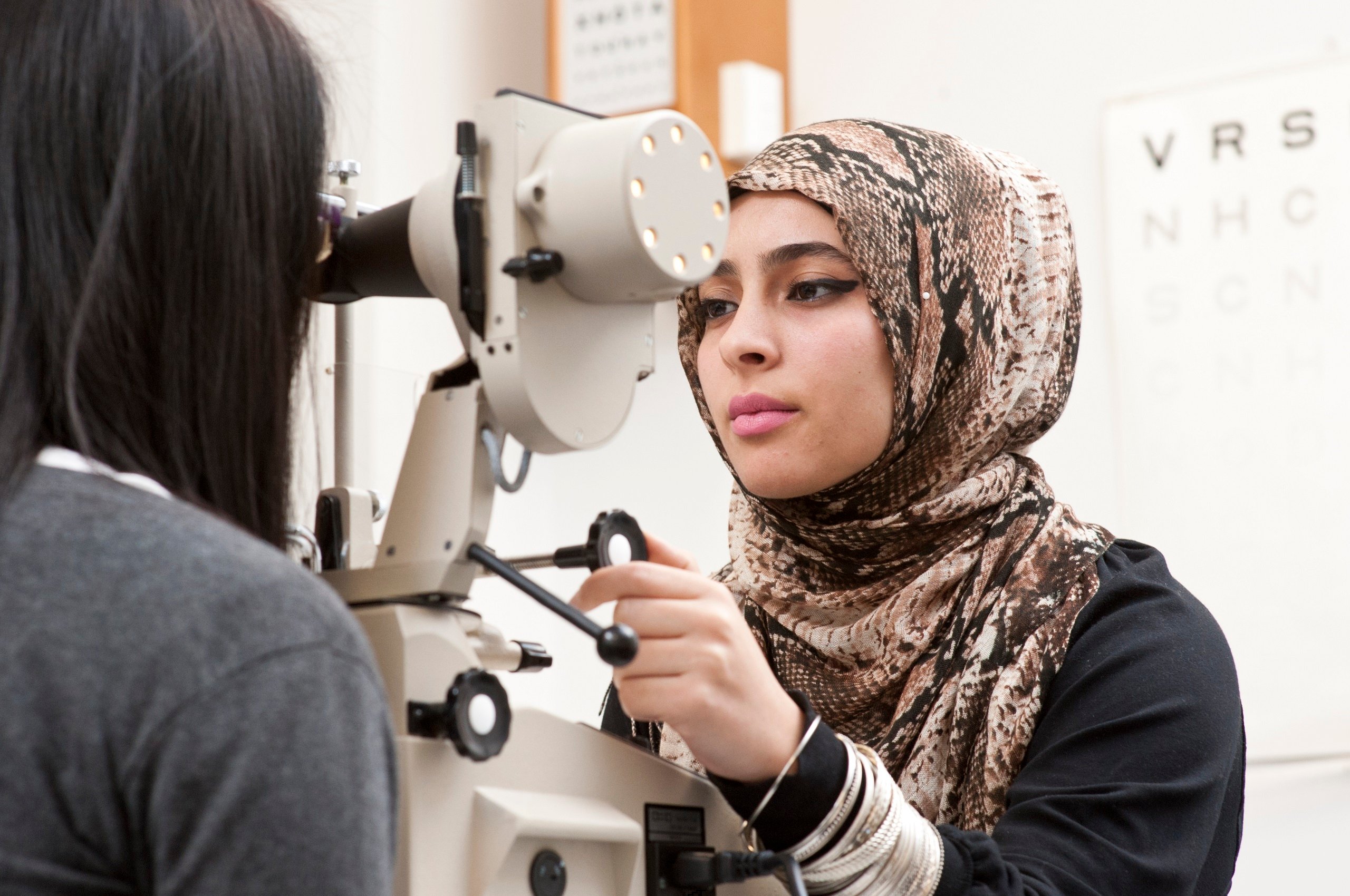About the Department of Community and Clinical Health

The Department of Community and Clinical Health is helping to transform health and wellbeing, education, research and practice.
Our Department is part of the School of Allied Health, Human Services and Sport.
Our undergraduate education programs equip students with the competencies for safe and effective entry-level practice in audiology, occupational therapy, orthoptics, social work and social policy, and speech pathology.
Our students learn from academic staff who are also experienced and passionate clinicians. Theory is put into practice with extended clinical placement opportunities where students gain experience, in a range of healthcare settings, while being mentored by experts in their field.
We value lifelong learning and the opportunity to support our graduates through ongoing education and training. Our postgraduate research degrees and continuing professional development programs give health professionals the opportunity to upskill, reskill, advance into leadership roles, or pursue research.
The result: Our graduates have a significant impact on the communities they serve. They improve health outcomes, promote access to high quality healthcare and undertake research that builds evidence-based practice and informs policy decisions.
Find out more about our Statement of Strategic Intent.

My La Trobe degree opened the door to an amazing career. It’s a career that continues to be inspiring, rewarding, challenging and full of opportunity. I want that for every student who comes to La Trobe University.
Preparing for practice
Whether you are wanting to become an occupational therapist, social worker, audiologist, orthoptist, or speech pathologist, a La Trobe degree is the gateway to a rewarding career.
Our courses equip graduates with the competencies for safe and effective practice, and registration with the relevant professional accreditation body.
Theoretical learning is put into practice on clinical placement, where students work under the guidance of practitioners in hospitals, community clinics and private practices in Australia and internationally.
Our academic staff bring a wealth of clinical experience to their teaching. Many continue to work in clinical practice and are internationally renowned in their area of expertise. Their experience helps them to seamlessly connect theory and practice in rich and interesting class activities.
Find out more about our courses and our facilities.
Research with impact
We undertake research that benefits a diverse range of people including those living with mental illness and psychosocial disability, hearing impairment and vestibular dysfunction, and vision impairment.
Our research is world class. The Australian Research Council’s Excellence in Research for Australia, for example, rated the disciplines of neurosciences and social work as above world standard.
Our researchers are sought after to inform government reviews and policy changes. Their innovations transform clinical care and improve health outcomes. Their advocacy promotes human rights and social justice.
For those returning to higher degree studies, we have the experts that will help you to excel in research. Our Department has over 100 postgraduate students, many of whom are embedded in our prestigious research centres or work with collaborators in Australia and abroad.
Our research supports La Trobe’s research themes: Healthy people, families and communities; Understanding and preventing disease; and Social change and equity.
Our research is grouped into our five discipline areas:
Audiologists provide a range of services relating to the identification, diagnosis and management of hearing and balance difficulties. Our researchers develop evidence-based practice in clinical audiology.
Our researchers work in a range of practice areas including rehabilitation, innovation and access to health services, occupation in context, mental health in schools and the community, complex health issues in rural and community settings, resilience and quality of life, co-design and implementation in practice, and education research.
Orthoptists provide a range of eye care services in a fast-paced contemporary practice environment. Through evidence-based practice, our researchers explore workforce challenges, the patient experience and risk factors.
Social workers promote social change and development, social cohesion, and the empowerment and liberation of people. Our researchers are at the forefront of academic debates within the discipline. We also have internationally-recognised expertise in child and family services, mental health, and alcohol and drugs research.
Speech pathologists work with people who have difficulties with speaking, understanding language, reading, writing and social skills. They also help people who have difficulty eating or drinking. Our researchers are working to improve service provision, client-relevant outcomes and the translation of research findings into practice.
Find out more about how our world class facilities lead to world class discoveries.
Research centres
Our staff play key roles in the Centre for Research Excellence in Aphasia Recovery and Rehabilitation, and the Living with Disability Research Centre.
The Centre for Research Excellence in Aphasia Recovery and Rehabilitation is a National Health and Medical Research Council-funded centre that aims to transform the health and wellbeing of people with aphasia and their families. The Centre’s research program champions enhanced, cost-effective and sustainable interdisciplinary aphasia rehabilitation and community service.
Find out more about the Centre.
The Living with Disability Research Centre conducts research to help improve practices, programs and policies that support the social inclusion of people with cognitive disabilities. The Centre’s research program focuses on building a robust evidence base for the disability sector, and the broader community, to address the complex and multifaceted problems facing people with cognitive disability, their families and carers.
Find out more about the Centre.
Academic and Research Collaborative in Health
Several of our academic staff are also members of La Trobe’s Academic and Research Collaborative in Health, which brings together academics, clinicians, consumers, healthcare professionals, health and social care agencies and policy makers skilled in the translation of interdisciplinary research.
The Academic and Research Collaborative in Health aims to improve the patient experience, patient outcomes, healthcare quality and safety, and to achieve best practice in service provision. Partners include Alfred Health, Austin Health, Eastern Health, Healthscope, Mercy Health, Northern Health, the Royal Melbourne Hospital and the Women’s.
Find out more about the Collaborative.